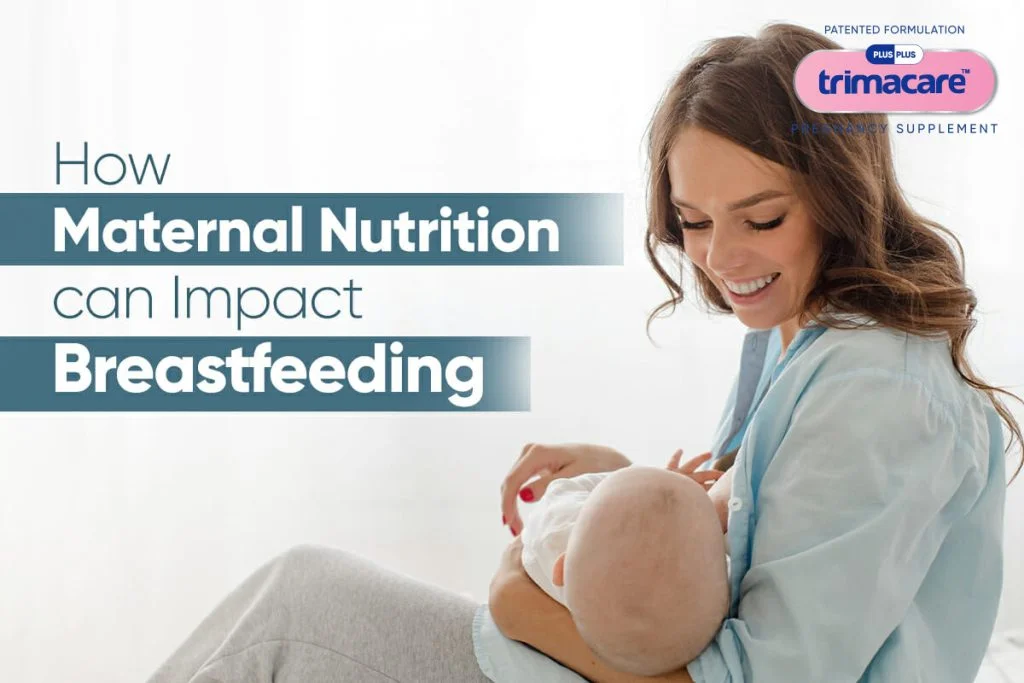Mammalians are highly efficient at providing for their baby during gestation & after, improving the chances of the offspring’s survival. Humans are no different, as pregnant females carry their children & provide them with nutrients during gestation through their diet, and through breastmilk after birth. These highly efficient mechanisms ensure that the child receives adequate protection & care, improving birth outcomes. However, breastfeeding in itself can be an exhaustive activity for some mothers – nursing problems, latching problems, and lactation-related issues are common. To understand how & why pregnancy nutrition and the nutrition after delivery affect pregnancy, let’s understand breastfeeding in detail.
How Is Breastmilk Produced?
Different stages occur during the production of breastmilk. They are –
Stage 1
– This begins in the second trimester of pregnancy when the hormones are released to signal the mammary glands in the breast to start producing milk. In the first 24-48 hours after giving birth, the breasts release colostrum, the thicker and nutrient-rich first milk for the pregnancy.
Stage 2
– After 3-5 days of giving birth, the mature milk begins to get released. The breasts feel fuller & sometimes the mature milk might be released with a delay if there are health problems such as obesity & diabetes in the mother. Caesarean section or inverted nipples may also cause a problem.
Stage 3
– This stage starts when your baby is about 9 days old, and the milk needs to be expressed for the mother’s breasts to continue making milk. This can be done by feeding the baby & through breast pumps.
Stage 4
– This occurs after 40 days of stopping breastfeeding, where the breastmilk production slowly reduces & stops.
Breastmilk contains proteins, antibodies, sugars, minerals, vitamins, and fats. Its composition changes according to the growing needs of the baby. Breastfeeding has many benefits for the baby, including lowered risk of Asthma, Obesity, Type 1 Diabetes, Severe Lower Respiratory Disease, Sudden Infant Death Syndrome, Gastrointestinal Infections, Necrotizing Enterocolitis for preterm infants, and Ear Infections. For the mother, breastfeeding reduces the risk of ovarian cancer, Breast Cancer, Type 2 Diabetes, and High Blood Pressure.
Maternal Nutrition while Breastfeeding
The quality of breastmilk remains consistent, but having a good diet helps the overall health of the breastfeeding mother. The requirement of Iodine & Choline increases during breastfeeding, as do the caloric requirements. To determine your calorie requirements and if you need any supplements, discuss this with your gynaecologist.
Take Away
Breastfeeding is essential for maternal health & the health of the baby. Healthcare providers need to determine if the lactating mother needs Iron, Choline, Zinc, Vitamin B12, and Omega-3 Supplementation. Doing this becomes more important if the mother has a vegan or vegetarian diet. Adequate Prenatal Nutrition is essential, as breast milk starts to form in the second trimester. Adequate Prenatal Nutrition also keeps the mother’s health good, making it easier for her to breastfeed her infant without feeling exhausted. Trimacare Pregnancy Multivitamin contains all the essential nutrients a pregnant lady needs in a Trimester-Wise course, ensuring that the pregnant mother can receive the correct nutrition. The 20 plus nutrients in one tablet ensure that the mother can consume her prenatal conveniently. The formulation based on WHO & ICMR guidelines ensures that the mother’s health is prioritized and her pregnancy nutrition is optimal.
Frequently Asked Questions:
1. How does feeding nutrition impact my baby’s health?
Taking care of sustenance assumes a critical part in moulding your child’s wellbeing by giving fundamental supplements to development, improvement, and safe capability.
2. What are the key nutrients important for my baby’s health?
Protein, carbohydrates, fats, vitamins, and minerals are important nutrients for your baby’s health because they all help with different aspects of growth and development.
3. How do I ensure my baby receives proper nutrition?
Guarantee your child gets legitimate nourishment by breastfeeding solely for the initial a half year, presenting different nutritious food varieties progressively, and talking with a paediatrician for direction on adjusted dinners.
4. Can I breastfeed if I have dietary restrictions?
Generally speaking, breastfeeding is as yet conceivable with dietary limitations, yet it’s fundamental for work with a medical care supplier or lactation specialist to guarantee you and your child’s healthful necessities are met.
5. What are signs that my baby is not getting adequate nutrition?
Signs that your child may not be getting sufficient sustenance incorporate sluggish weight gain, unreasonable particularity, weariness, and formative deferrals. Talk to your paediatrician for personalized guidance if you notice any symptoms that concern you.
A Certified Nutritionist with a rich healthcare background in health journalism, the author has immense experience in curating reader-friendly, engaging, and informative healthcare blogs to empower readers to make informed pregnancy-related decisions.












